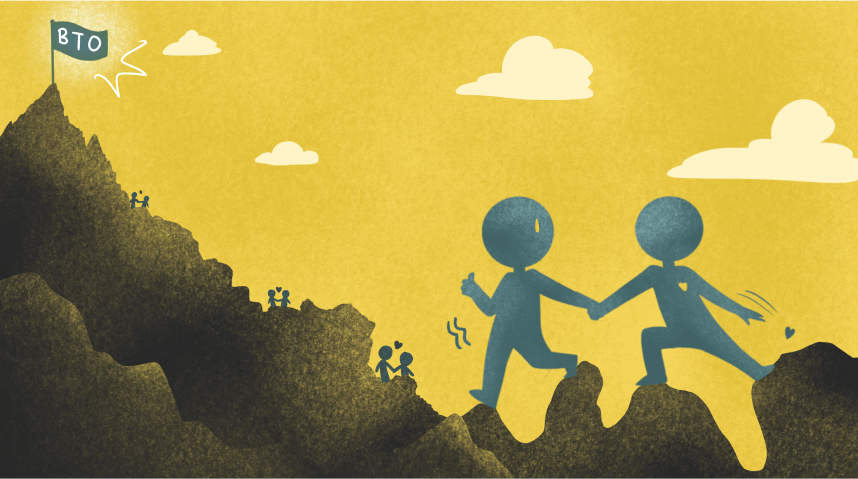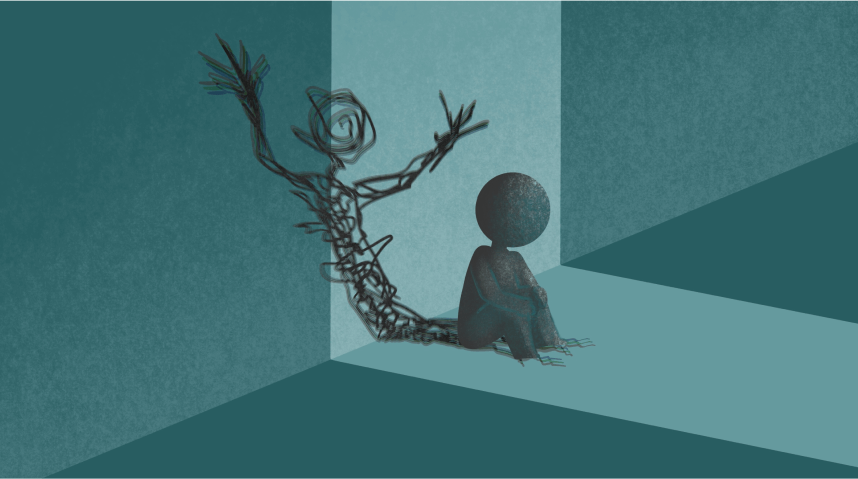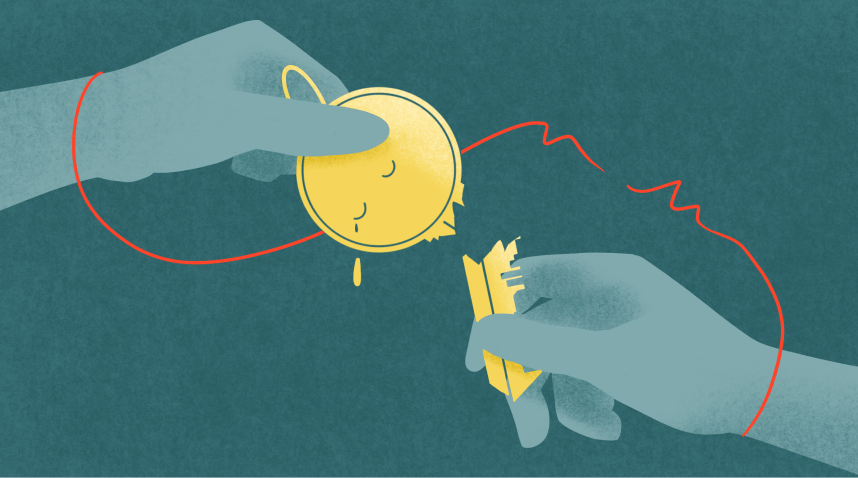TLDR: This article takes you through my journey of getting into depression and a general description of the experience.
Note to readers: this article only reflects my personal journey through mental illness. Please seek professional medical advice if you are feeling unwell.
Living in blissful delusion

Just like many other young adults, I got into a long-term relationship. The relationship was rocky with its ups and downs. But eventually, following the typical Singaporean rite of passage, we decided to get a BTO housing apartment after four years together.
When the commitment of buying a house together came, it made me think about the differences in values between me and my ex.
Living in blissful delusion, I had a strong belief that if we stay together, we can work things out. There was a strong craving for romantic feelings and physical touch from another person.
The downfall

Right before the day when my ex and I were supposed to select the apartment to purchase, we got into a big fight about our differences in values. Eventually, the relationship was broken.
Not knowing what a failed relationship meant, I woke up not knowing what to do on weekends. In the past, weekends meant going out with someone.
Having a change in routine, the void and emptiness started developing. I didn’t know what to do during my free time.
Still not knowing about the emptiness that was ravaging me, there was a lack of awareness of my own thoughts and feelings. I went about my university life, taking my final year papers in anticipation of graduation and a new phase of life. Unknowingly, I became quieter than usual (I am quiet by nature) and I looked sad.
Then during a meeting with a mentor, he remarked to me, “Someone commented that you looked depressed. Are you okay?”
After that meeting, a new word entered my vocabulary, “Depression”.
Drowning in the flood

While living in blissful ignorance of my depression, I was going about my final university days, trying to pass exams and getting a job.
It turned out that depression was affecting my performance in daily life. I was replaying the thoughts of my broken relationship every single hour. Wanting to find answers to the questions in my mind, no answers could be found.
“Could I have given in more so the relationship would work out?”
“Why can’t the differences between us be reconciled after trying for years?”
The more I craved for answers, the more I tried to replay all the memories and past feelings to find answers. Unknowingly, I sank deeper in the rabbit hole.
Struggling with the raging memories, I could not focus on the daily tasks at hand. I performed poorly for my internship and my exams. I managed to graduate but without a return offer to my internship company due to poor performance.
Whilst I was jobless as a fresh graduate, I had all the time in the world to find a job. I had more time to drown myself in my sorrows as well. I replayed my memories from the past even more to try and find answers.
Eventually, it came to a point that I was crying uncontrollably in the middle of the night, alone in my room. I was drowning in my own thoughts and emotions of the past.
I hit rock bottom and thoughts of ending it all came. I was jobless, I was suffering from my thoughts and emotions and I felt trapped in pain.
Note: I will not elaborate on depression. Because thinking about it will only strengthen the intention. To anyone who is reading this, feeling depressed or not, having that awareness of depression or sadness will be the first step. The second step is to set the intention and overcome the sadness.
All mental phenomena have mind as their forerunner;
they have mind as their chief; they are mind-made.
If one speaks or acts with an evil mind,
‘dukkha‘ follows him just as the wheel follows the hoofprint of the ox that draws the cart.
– Dhammapada 1
A mind full of negativity will only create more negative thoughts. Then suffering follows.
When I realised that I was drowning in negativity, the first thing was to acknowledge that I was in a pit and to stop digging further. Acknowledging the present situation was the first step to make me feel better and move toward recovery.
Conclusion
The intent of the article is to share my own experience of falling into depression and a general description of the experience.
The main point here is to be aware of strong negative thoughts and feelings that lingers in your mind. Being aware of the strong negative thoughts and feelings, acknowledge that you are feeling sad.
Then set the intention to see the negative state of mind as it is, not fighting the negative state of mind (not wanting the negativity) and not giving in (delighting in your pain) to the negative state of mind.
It’s not going to be easy. But overcoming the negative state of mind to have a peaceful state of mind will be worth it.
My next article will focus on how my unexpected journey into the Dhamma brought much needed relief from suffering.
Mental health resources for those in need:
- SOS 24-hour Hotline: 1-767
- Shan You Counselling: 6741 9293
- Buddhist Free Clinic: 6841 3370
- Singapore Association for Mental Health: 1800-283-7019
- Institute of Mental Health: 6389-2222 (24 hours)
- Thye Hua Kwan Moral Charities: 6337 1201
Wise steps
- Make your body and mind happy while you are trying to recover from illness (mental and physical). Do light exercises and eat healthy so your body and mind are happy and ready to change.
- Acknowledge your negative thoughts and feelings. Show yourself care like how you would advise your best friend.
- Celebrate each moment you feel the peace away from your troubling mind.


